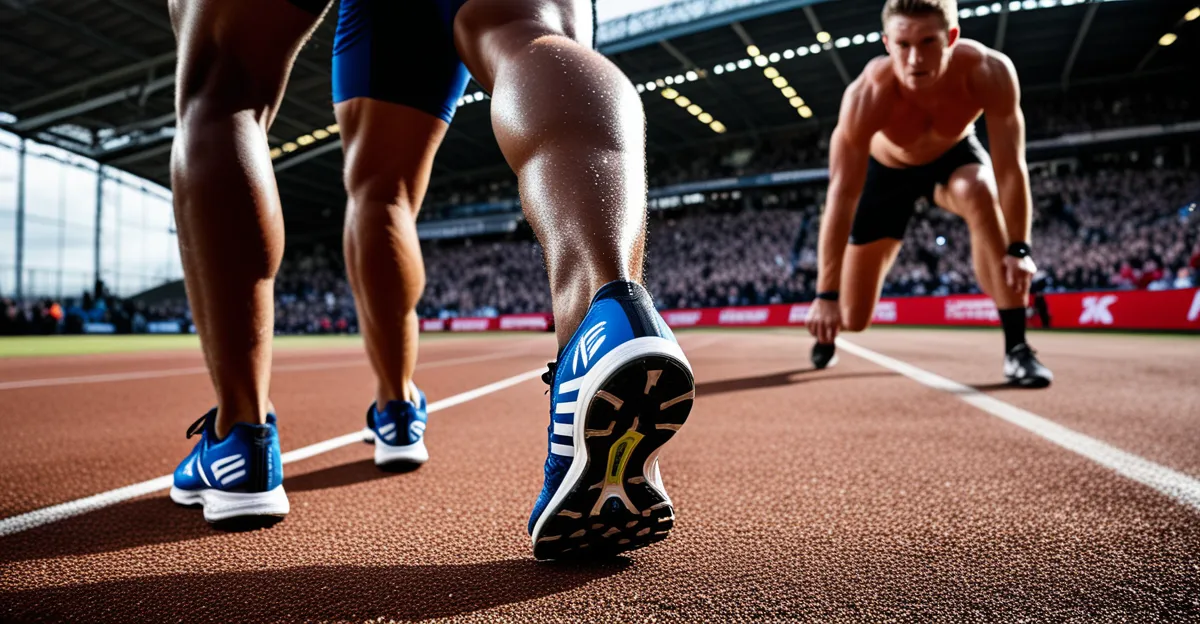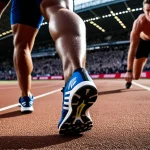Core Foundations of UK Sports Excellence
The government investment in sports forms the backbone of the UK’s athletic achievements. Consistent and substantial elite sports funding ensures that athletes receive the necessary support to compete at the highest level. This funding channel not only bolsters training but also upgrades the sports infrastructure UK-wide, creating world-class facilities crucial for athlete development.
These facilities provide specialized environments where athletes can hone their skills with cutting-edge equipment and expert coaching. Government policies, aimed at integrating funding with strategic development plans, have created a robust framework allowing talented individuals to progress within a system designed for success.
In the same genre : How Do UK Sporting Events Contribute to National Identity?
Comparatively, the UK’s approach to sports investment is distinctive for its blend of centralized funding with regional empowerment, setting it apart from other nations that rely either heavily on private sponsorship or decentralized models. This strategy maximizes the impact of available resources on both grassroots initiatives and elite athletic performance.
By sustaining financial commitment and advancing infrastructure, the UK demonstrates a clear understanding that government investment in sports and top-tier facilities directly contribute to its sustained excellence on the world stage.
Also to discover : How Do UK Sports Events Promote Community Engagement?
## Advanced Talent Identification and Development Programs
The talent identification UK system is a cornerstone in cultivating elite athletes. This approach systematically scouts promising individuals early, ensuring that exceptional potential is recognized and nurtured. Precision in identifying talent involves assessing physical, mental, and technical capabilities through rigorous evaluation methods, which allow for targeted support tailored to each athlete’s needs.
Once identified, athletes proceed along clearly defined athlete development pathways, transitioning from grassroots foundations into high-performance training environments. These pathways incorporate progressive skill-building, competitive experiences, and psychological preparation. Integration of education and sports training enables athletes to balance academic growth, ensuring long-term career sustainability beyond competitive years.
The effectiveness of these programs is visible in numerous success stories where athletes rose from local clubs to represent the UK on international stages. The seamless coordination between grassroots initiatives and elite sports structures exemplifies a robust framework where investment translates into tangible results. This system’s strength lies not only in early talent spotting but also in creating sustained support mechanisms that maintain athlete progression while fostering holistic development.
Leadership in Sports Science and Innovation
The sports science UK field plays a pivotal role in elevating athlete performance through cutting-edge research and technology. Top institutions collaborate with elite teams to pioneer methods that enhance physical conditioning, injury prevention, and recovery processes. This synergy between academia and athletic programs boosts competitive edge across various disciplines.
A key aspect of innovation involves the integration of technology in UK sports. Wearable devices, motion analysis systems, and biomechanical monitoring provide real-time data, enabling tailored training regimes. Such advancements lead to measurable improvements in endurance, strength, and precision, directly impacting win rates.
Moreover, performance innovation in the UK encompasses applied data analytics. By interpreting large datasets, coaches can optimize strategies and adapt to opponents dynamically. This data-driven approach is increasingly indispensable in preparing athletes for high-stakes competitions.
Research partnerships with technology firms and universities further accelerate breakthroughs, positioning the UK as a leader in sports science and innovation. These collaborative efforts cultivate new tools and methodologies that continuously refine athlete preparation, making the UK a formidable force on the global sports stage.
Cultural Commitment to Sporting Achievement
The sports culture UK is deeply rooted in the nation’s identity, fostering both historical pride and broad community engagement. This culture embodies a shared enthusiasm that drives high participation rates UK across diverse age groups and abilities. From school programs to local clubs, widespread involvement builds a strong foundation for athletic excellence.
National pride plays a significant role in motivating athletes and supporters alike. Celebrations of sporting success help cement a collective sporting spirit, encouraging ongoing dedication and ambition. This sense of belonging promotes a supportive environment where talent flourishes.
Promoting inclusivity is another crucial element in the sports culture UK. Efforts to remove barriers to participation ensure access to sports for underrepresented groups, reflecting a commitment to equality and diversity. This inclusivity enriches the talent pool and strengthens social cohesion.
Moreover, community initiatives often complement formal development programs, creating synergistic support from grassroots to elite levels. The result is a vibrant sporting ecosystem, where cultural values contribute directly to sustained achievement and inspire future generations to engage actively in sport.
Hosting Major Sporting Events and International Reputation
The UK’s strategy of hosting major sporting events significantly boosts both its economic landscape and sporting infrastructure. Events such as the Olympics and Commonwealth Games have spurred extensive sports infrastructure UK upgrades, creating lasting venues that serve athletes long after the competitions conclude. These venues contribute to training and community engagement, enhancing the country’s athletic capabilities.
Beyond physical infrastructure, the legacy of UK hosted sporting events includes increased tourism revenue and job creation, reinforcing the economic benefits that accompany such global showcases. These events elevate the UK’s profile, attracting international athletes and fostering collaboration among sports organisations.
How does hosting affect the UK’s international sports reputation? It cements its status as a premier destination for elite competition, showcasing organizational excellence and commitment to sport development. This reputation promotes goodwill and opportunities to host future tournaments, strengthening athlete pathways and public interest.
Overall, the legacy of sporting events in the UK extends beyond the games themselves—integrating infrastructure, economic gains, and enhanced global respect, which collectively support ongoing elite sports funding and advancement.




